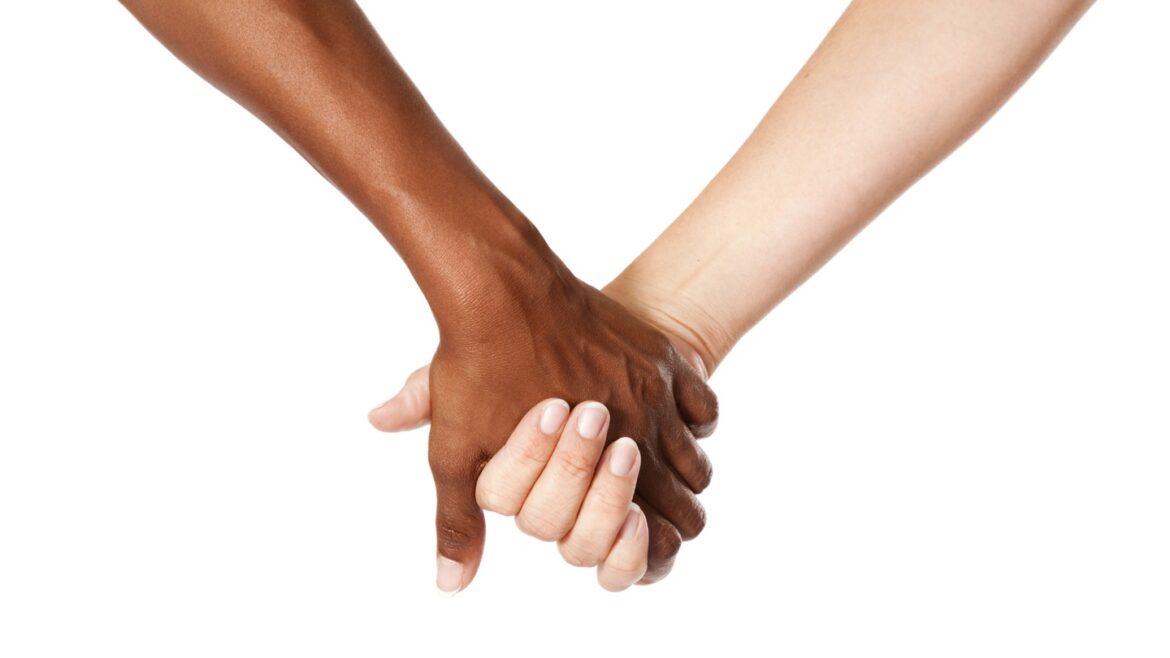Once people come together in a ‘mixed’ relationship, maintaining that relationship can be challenging for some couples. The challenges that they may face can include having to deal with others disapproval, and in some cases, the exclusion from family and friends.
The reasons for negative attitudes towards and rejection of ‘mixed’ couple relationships are largely based on deep-rooted assumptions and stereotypes about ‘mixed’ families, and limited knowledge about other people’s racial, ethnic and religious backgrounds.
Disapproval and rejection from extended family
The extent of negative responses from wider family members and the reasons for mixed couples experiencing them can vary. It can depend on whether or not the family has any past experiences of mixing and how open they are to mixing. The type of mix – for example racial, ethnic or religious mix – can also shape couples’ experiences of disapproval and rejection from extended family members.

source: everydayfeminism.com
Some extended families view ‘mixed’ relationships as a rejection of or threat to their cultural and religious values. Also, family conflicts that are already in existence can become intensified and cause further divisions within families.
Estrangement from the wider family can resolve itself over time in some cases. The birth of a child (grandchild) can be a significant event that brings everyone together, for example. But some couples are never reconciled with their extended families.
Some parents might find it difficult to accept their child partnering with someone from a different racial or ethnic background because they worry about possible experiences of racism towards any grandchildren from the wider community.
Negative attitudes from people in the wider community
Some ‘mixed’ couples experience disapproval and rejection from others in the wider community. The extent to which they face such challenges can differ for couples according to where they live, places they visit, and who they work and socialize with.
While some ‘mixed’ couples have no negative experiences, others have experiences ranging from disapproving stares to unkind comments, and in some cases psychological and physical abuse.

source: stocksy.com
Some ‘mixed’ families find that people in the wider community sometimes don’t acknowledge that they are related because they may look different from each other. This might range from friendly curiosity to hostility.
Within their own family, ‘mixed’ couples may talk to their children and help them to understand about difference in their family. This can help create a sense of identity and belonging for children in ‘mixed’ families, as well as promoting tolerance and acceptance of difference in others.
Dealing with disapproval and rejection
Dealing with negative attitudes can be challenging for ‘mixed’ couples, and can create stresses in their relationship. Couples can, however, be successful in finding various ways to cope.

source: thedailybeast.com
Where ‘mixed’ couples face opposition from family members, they may:
- Cut themselves off from disapproving family members in order to lessen the stress on their relationship.
- Confront particular individuals in their families and try to reach some compromise over their negative attitude and behavior, especially in relation to the couple’s children.
- In some cases some people may seek therapy as additional means to help them cope.
Friends can often be a major source of support for ‘mixed’ couples and their families:
- Some couples cope by staying in or seeking out networks of friends with whom they can share common interests and activities and who just accept their mixed relationship.
- Other couples make friendships with people like themselves who also are in ‘mixed’ relationships.
In dealing with discrimination from people in the wider community, strategies that ‘mixed’ couples can use include:
- Choosing to live and raise their families in diverse neighborhoods where they feel that people are more accepting of mixing.
- Seeking help from organizations that support their choices.
- Ignoring disapproving reactions, sometimes out of concern for themselves and their children’s safety.
- Using humor as a tactic for coping with prejudice.
- Confronting prejudice and trying to educate people about ‘mixed’ couples and families.
Some ‘mixed’ couples find that viewing their racial, ethnic and religious differences as strengths, and focusing on the things they share in common are also good ways to strengthen their couple relationship and to help them cope with negative attitudes from others.

source: pinterest.com
By signing up to the personal section of thecoupleconnection.net, you can use exercises to help you strengthen your relationship (goals you can work on include having a shared view of your future and understanding and respecting differences)

